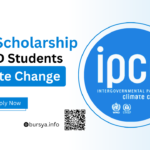UNESCO
UNESCO (United Nations Educational, Scientific and Cultural Organization) is a specialized UN agency promoting global peace and security through cooperation in education, sciences, culture, and communication. Founded in 1945 after World War II, it has 194 member states, 12 associate members, and numerous global partners. Headquartered in Paris, it operates 53 regional offices and 199 national commissions.
UNESCO advances its mission through five key areas: education, natural sciences, social/human sciences, culture, and communication. It supports literacy, scientific research, press freedom, and cultural heritage preservation, including World Heritage Sites. A General Conference, an executive board, and a Director-General lead governance.
Its roots trace back to a 1921 League of Nations initiative for intellectual cooperation. After World War II, discussions at the 1945 London Conference led to UNESCO’s formal establishment. The first General Conference in 1946 elected Julian Huxley as its first Director-General. Over time, UNESCO evolved amid global political changes, including the Cold War and decolonization.
Development Summary
UNESCO has played a key role in combating racism, beginning with a 1950 declaration by anthropologists, including Claude Lévi-Strauss, and culminating in the 1978 Declaration on Race and Racial Prejudice. Its anti-apartheid stance led South Africa to withdraw in 1955, only to rejoin in 1994 under Nelson Mandela.
In education, UNESCO launched its first major project in Haiti in 1947 and later conducted missions, including one in Afghanistan in 1949. It advocated for universal primary education in 1948 and initiated global movements such as the 1990 Education for All conference in Thailand and the 2000 Dakar Forum, aiming for universal education by 2015. The 1998 World Declaration on Higher Education set global standards for accessibility and quality.
UNESCO’s cultural efforts include the 1960 campaign to save Nubian monuments from flooding, leading to similar projects worldwide and the adoption of the 1972 World Heritage Convention. The first World Heritage sites were designated in 1978. UNESCO later established key cultural agreements, including the 2003 Convention on Intangible Heritage and the 2005 Convention on Cultural Diversity.
UNESCO also played a role in scientific advancements, facilitating the creation of CERN in 1954 and launching the Man and the Biosphere Programme in 1968 to address environmental sustainability.
In communication, UNESCO has promoted free information flow since its inception. It trained journalists in the 1950s, addressed media development through the 1980 MacBride Report, and established the IPDC. The 1993 Windhoek Declaration led to the recognition of World Press Freedom Day on May 3, and since 1997, UNESCO has awarded the Guillermo Cano World Press Freedom Prize annually.
Further details and information are available on the official UNESCO website.




